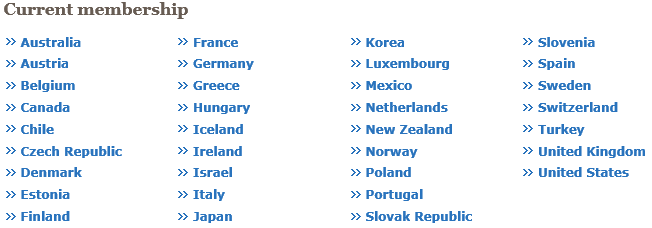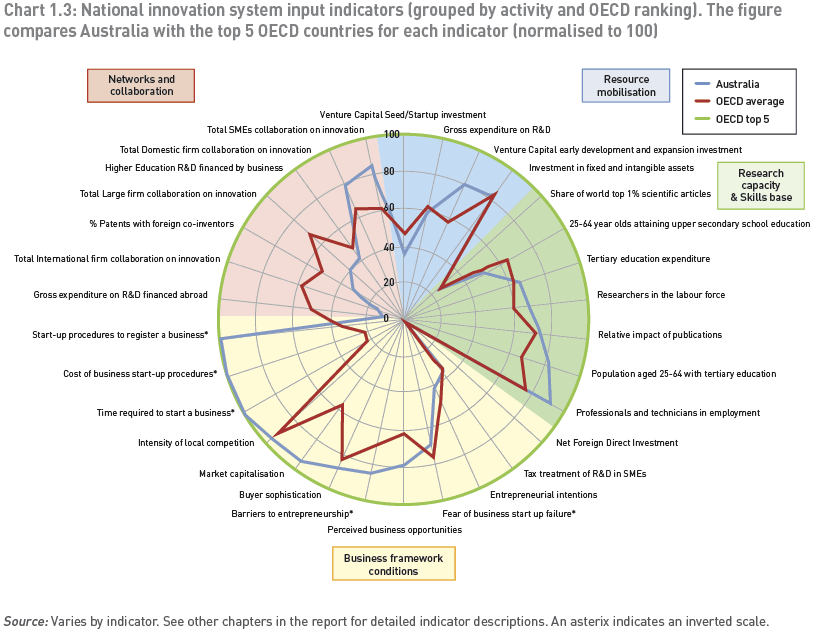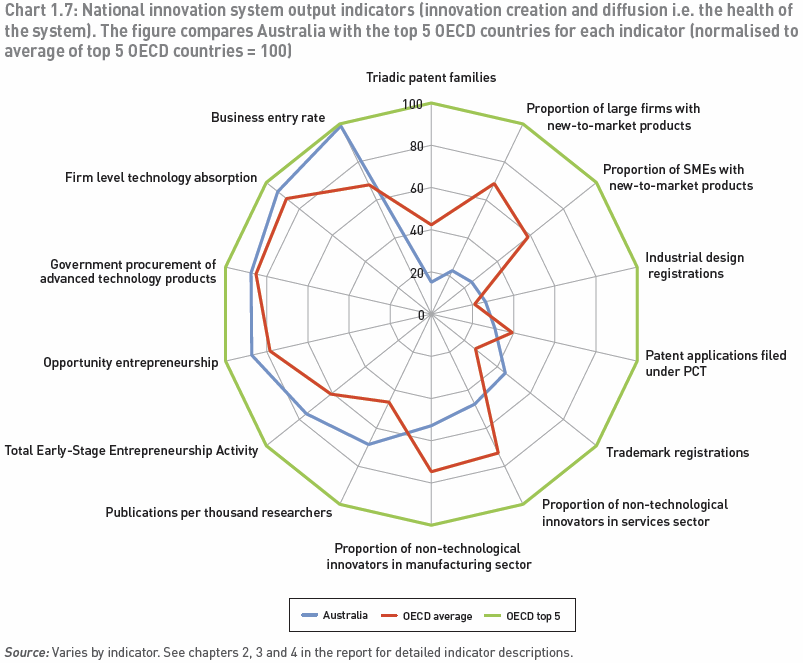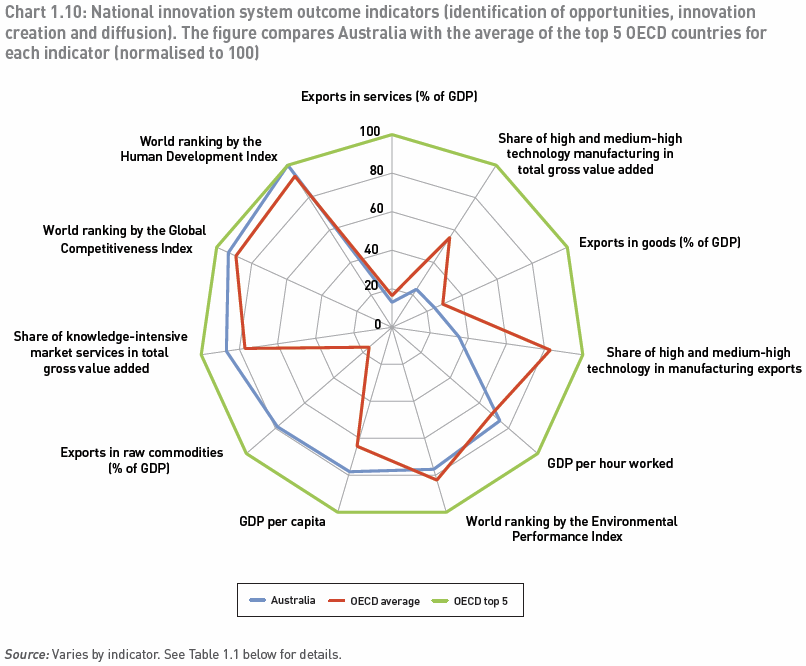|
|
|
|
|
|
|
News & Views item - August 2011 |
![]() Never Waste a Good Crisis -- Especially If It's Not Yours. (August 2, 2011)
Never Waste a Good Crisis -- Especially If It's Not Yours. (August 2, 2011)
A funny thing happened on the way to the Global Economic Crisis, Australia was hardly adversely affected. Now you might have thought that in the circumstances our leaders would have been keen to looked for the main chance(s). Certainly in the area of scientific research they would have had (and probably still do) ample opportunity to set in motion the acquisition of outstanding scientific talent had they been prepared to make available outstanding facilities and working conditions.
As an example an editorial written on July 8 in Science by Michael Rosbash, an Investigator of the Howard Hughes Medical Institute and a professor of Biology at Brandeis University indicates the problems facing medical researches in the United States:
 These are difficult times for the U.S. National Institutes of Health (NIH).
Its 2011 budget is 1% less than in 2010, and it is increasingly common for NIH
to administratively decrease the size of awards across the board, before money
goes out the door. For example, approximately 36% of NIH grant awards derived
from the stimulus in FY 2009 were individual research awards (R01s). But the
prospects moving forward are bleak, given the absence of stimulus funds and the
building momentum for cutting federal discretionary spending... the number of
grants awarded for research ideas originated by individual scientists
(untargeted R01s) has been stagnant. It also explains why paylines (the percent
of applications funded) are at or near record lows. NIH Director Francis Collins
recently testified before a Senate subcommittee that in FY 2011 only 17% to 18%
of grant applications would be funded, the lowest level on record... innovative
investigator-initiated research is in dire straits. This critical part of the
NIH research effort forms the basis for future medical progress and must be
returned to good health.
These are difficult times for the U.S. National Institutes of Health (NIH).
Its 2011 budget is 1% less than in 2010, and it is increasingly common for NIH
to administratively decrease the size of awards across the board, before money
goes out the door. For example, approximately 36% of NIH grant awards derived
from the stimulus in FY 2009 were individual research awards (R01s). But the
prospects moving forward are bleak, given the absence of stimulus funds and the
building momentum for cutting federal discretionary spending... the number of
grants awarded for research ideas originated by individual scientists
(untargeted R01s) has been stagnant. It also explains why paylines (the percent
of applications funded) are at or near record lows. NIH Director Francis Collins
recently testified before a Senate subcommittee that in FY 2011 only 17% to 18%
of grant applications would be funded, the lowest level on record... innovative
investigator-initiated research is in dire straits. This critical part of the
NIH research effort forms the basis for future medical progress and must be
returned to good health.
Roy Vagelos, the former CEO of Merck, is highly critical of new NIH efforts to put increased resources into translational and applied research efforts, saying that NIH should stick to supporting new knowledge and discoveries. Note that the most important breakthroughs often come from unexpected areas of inquiry... The key concept is that we do not know from which life science discipline or even organism the next great medical advance will emerge.
Instead we are being told the nation is punching well above its weight -- which it isn't -- if you compare us with the top half of OECD nations . There is this mantra that Australia is equal or above the OECD average which per se is not all that great an endorsement. and ought to be incentive to move upward.

Now with respect if you're just around the middle of the OECD pack and occasionally ranked among the top 5 that doesn't really allow you to have tickets on yourself. Certainly the population expects more of our sporting elite.
The three charts below are taken from the recently published
Australian Innovation System Report 2011![]() and are a reasonable summary of where Australia
sits in the pack where the mean of the top 5 nations for each category is set to
100.
and are a reasonable summary of where Australia
sits in the pack where the mean of the top 5 nations for each category is set to
100.



Professor Rosbash also made the point that: "A 'fund people, not projects' strategy is already practiced by the Howard Hughes Medical Institute. The Wellcome Trust and individual European Research Council grants are moving in this direction," and while the NIH has begun a similar effort it is on a tiny scale. "these programs make up a small fraction of total NIH funding. For example, only 17 Pioneer Awards were awarded in FY 2010. Dramatic movement in the 'fund people, not projects' direction throughout the NIH will be essential to promote true innovation."
He also makes the point that: "With 10 to 15% paylines at some institutes (or even less), the current situation makes grant evaluation nearly impossible and is putting truly excellent laboratories out of business." Clearly there is a excellent opportunity to offer outstanding researchers positions in Australia were our political masters and university administrators prepared to "pull their collective fingers out".
And finally the situation for researchers in the non-medical sectors are in comparable situations.
Of course few currently in government or university administration were around when the United States became recipient of European scientific genius through the auspices of Hitler's Third Reich, and while matters are certainly not that dire in the US, or the UK there certainly ought to be opportunity for Australia to take advantage of the financial crises.